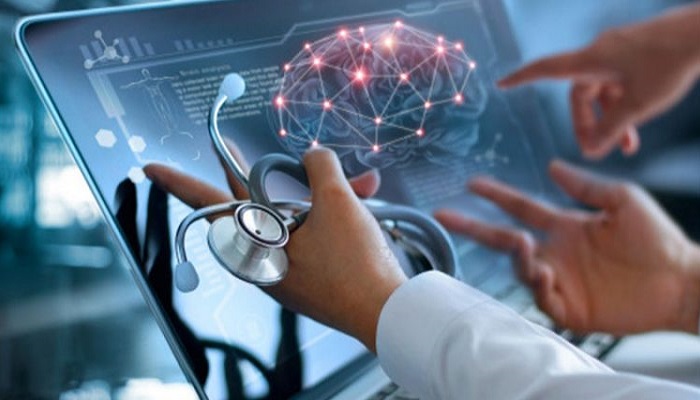In the ever-evolving landscape of healthcare, technology plays a pivotal role in enhancing patient care, streamlining operations, and improving overall health outcomes. As the industry faces increasing pressures from rising costs and the demand for better services, the adoption of intelligent IT solutions is more crucial than ever. In this blog, we will explore how various IT solutions for healthcare sector and driving innovation.
The Importance of IT Solutions in Healthcare
Healthcare providers are often challenged by complex administrative tasks, data management, and the need for efficient communication. IT solutions can address these challenges by automating processes, improving data accuracy, and enhancing patient engagement. Here are some key areas where IT solutions make a significant impact:
- Electronic Health Records (EHRs)
One of the most transformative IT solutions in healthcare is the implementation of Electronic Health Records (EHRs). EHRs centralize patient data, making it accessible to authorized healthcare professionals across various departments. This not only improves the accuracy of patient information but also facilitates better decision-making and care coordination. With EHRs, providers can track patient histories, medications, and allergies, which is essential for personalized patient care.
- Telemedicine
Telemedicine has surged in popularity, especially following the COVID-19 pandemic. This IT solution allows healthcare providers to conduct remote consultations through video calls, chat, or phone. Telemedicine enhances accessibility for patients who may have difficulty traveling to a healthcare facility, such as the elderly or those in rural areas. By leveraging this technology, healthcare organizations can extend their reach, reduce wait times, and provide timely care, ultimately improving patient satisfaction.
- Data Analytics
The healthcare sector generates vast amounts of data every day. By harnessing data analytics, organizations can derive meaningful insights from this data. Advanced analytics tools can identify trends, monitor patient outcomes, and optimize operational efficiencies. For instance, predictive analytics can help healthcare providers anticipate patient needs and allocate resources more effectively. This proactive approach can lead to better patient outcomes and reduced costs.
- Patient Portals
Patient portals are another intelligent IT solution that enhances patient engagement. These secure online platforms allow patients to access their health information, schedule appointments, communicate with healthcare providers, and refill prescriptions. By empowering patients with easy access to their data, healthcare organizations can foster a sense of ownership over their health, leading to improved adherence to treatment plans and better overall health outcomes.
- Healthcare Mobile Applications
The rise of mobile technology has led to the development of healthcare mobile applications that facilitate communication between patients and providers. These apps can provide medication reminders, track symptoms, and offer educational resources. By integrating mobile apps into their services, healthcare organizations can promote continuous patient engagement, making it easier for patients to manage their health daily.
- Cybersecurity Solutions
As healthcare organizations increasingly adopt digital solutions, they become prime targets for cyberattacks. Implementing robust cybersecurity measures is essential to protect sensitive patient data. Healthcare IT solutions must include advanced security protocols, data encryption, and employee training on best practices. By prioritizing cybersecurity, healthcare providers can build trust with patients and ensure compliance with regulations such as HIPAA.
Benefits of IT Solutions for Healthcare
The integration of healthcare IT solutions in numerous benefits:
- Improved Efficiency: Automation of administrative tasks reduces the burden on staff, allowing them to focus more on patient care.
- Enhanced Patient Care: Access to accurate and up-to-date patient information enables providers to deliver personalized care.
- Cost Reduction: Streamlined operations and reduced paperwork lead to lower operational costs.
- Increased Accessibility: Telemedicine and mobile applications break down geographical barriers, making healthcare services more accessible.
- Better Health Outcomes: Data analytics and proactive care models contribute to improved patient outcomes and satisfaction.
Conclusion
In a sector as vital as healthcare, the adoption of intelligent IT solutions is not just beneficial; it’s essential. By investing in technologies such as EHRs, telemedicine, data analytics, and cybersecurity, healthcare organizations can enhance patient care, improve operational efficiencies, and ultimately transform the way healthcare is delivered.
For a deeper dive into specific IT solutions that are revolutionizing the healthcare sector. Embracing these innovations will not only prepare healthcare providers for the challenges of today but also position them for a more efficient and patient-centered future.
As we move forward, it’s clear that the integration of IT solutions in healthcare will continue to evolve, bringing with it exciting possibilities for enhancing patient care and operational effectiveness. By prioritizing technology, healthcare organizations can ensure they are well-equipped to meet the demands of tomorrow’s healthcare landscape.



